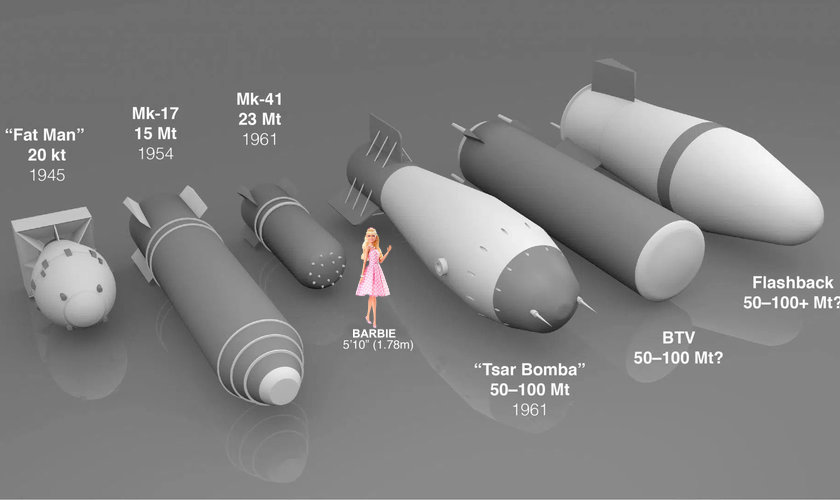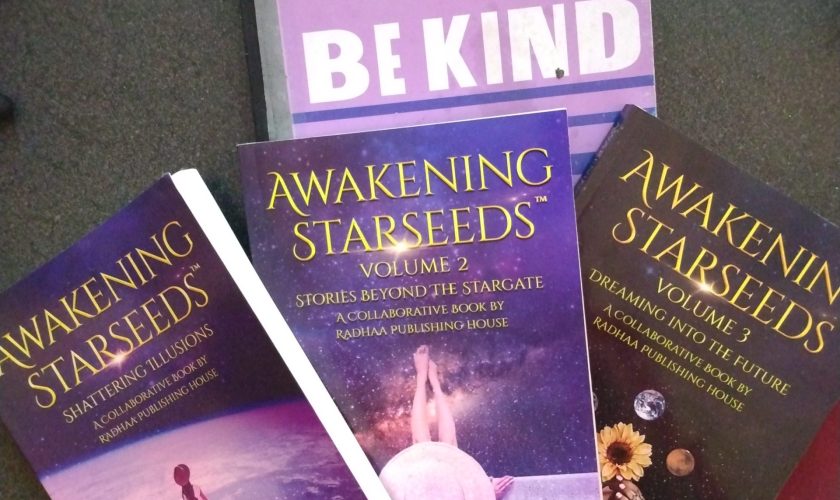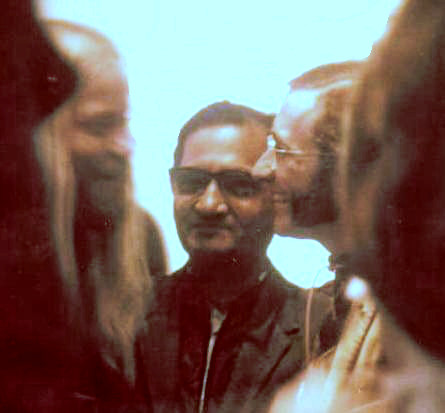How we view our history and future can be skewed, or even screwed if we don't see either well. I promised my readers I would…
Visions of Whole, Healed, Healthy, Happy World
What ever became of vision? Our current political and religious leadership have visions so dark and backward we forsake ever hoping for better. Can we look past these dreary scenarios? Dare we?
The visionaries of the past left failed results, leading us to cynicism. Skinner’s meager Walden II was at least a fair attempt at being fair. The Farm in Tennessee and the Oneida Community in upper New York were limited to limited communes. The great socialist vision of a worker’s paradise descended into forced labor in some places. The hopeful view of progress due to modernity at the turn of the last century ran head-long into the horrors of war, viral plagues, dust storms, more wars, and a cheapening materialism.
If we despair of the results of visions so much that we despair of having visions at all, where does that lead us? Are we so vision-bereft as to follow the one that claims government is bad for us? What happened to labor-saving devices? What about a three day work week? Will computers grant us control or be used to track and control us? Who asks the old utilitarian question: What brings the greatest good for the greatest number? In its stead we end up with the greatest good for the least number.
It is hard for a culture to generate decent visions when it is so steeped in wretched mythology and theology. If we’re all flawed and fallen, we deserve a painful, stressful culture. We gravitate to tragedy to prove how bad it is and we are. The ultimate vision of a divided win/lose, us versus them view is the popular Rapture series. The good will be magically floated out of the otherwise horrid conditions of the end of the world.
The movie makers offer visions, though they’re often negative ones. It is easier to entertain with fright and dramatic tragedy than it is to offer plausible, inspiring visions. The book 1984 frightened and warned us – until the year came and went. Who would generate visions these days? We look to politicians hopefully every four years, but how feasible is that? We could ask the churches. The Jehovah’s Witnesses, the Seventh Day Adventists, and the Mormons have colorful visions of a happy future, but those are for the adherents, not everyone.
Our own Unitarian Universalist principles affirm a “goal of world community with peace, liberty and justice for all.” Our own UU churches and fellowships embody the institutional and individual actualization of that goal, be it planting peace gardens and poles to supporting the UN. We often end up opposing what impedes or invades a world community more than we generate visions of that community.
Yoko Ono helped generate visions back in the 1970’s. She put up money as a prize for an essay on “How We Survived the Nuclear Threat.” You may recall how justifiably frightened we were of the explosive of that massive potential. The political leaders of the world need examples of practical visions that actually open minds and help guide.
Some geniuses generate design ideas. Leonardo Da Vinci in his day and Paul McCready and Burt Rutan in ours come to mind. Others cross over in to relating design to vision, like Buckminster Fuller and Ghandi, though Ghandi added a social spiritual technology to his spinning wheel appropriate technology. In the realm of theology, Teilhard de Chardin relates Catholicism to Cosmic principles. In the Buddhist tradition King Ashoka is revered for his actually loving his people and looking to their well being and happy lives. FDR did that in our time to some extent, and Martin Luther King’s prophetic vision has come partly realized.
Some of earth’s citizens have begun the good work of envisioning a healthy, sustainable future. The Bioneers annual conference has brought together such persons as Leonardo DiCaprio, Ted Turner, Joan Bavaria, Paul Hawken, Gary Hirshberg, Julia Louis-Dreyfus, David Suzuki, Winona LaDuke, Ray Anderson, and Senate Majority Leader George Mitchell. This year’s presenters includes Anthropologist Jeremy Narby, who ventures into traditional cultures and the leading edge of contemporary science to determine nature’s way of knowing in Intelligence in Nature: An Inquiry into Knowledge. Traveling from the Amazon basin to the Far East, he probes what traditional healers and pioneering researchers understand about the intelligence present in all life forms.
Intelligence in Nature provides clear illustrative evidence that independent intelligence is not unique to humanity alone. Bacteria, plants, animals and other forms of nonhuman life display an uncanny penchant for self-deterministic decisions, patterns and actions.
Jane Goodall’s Roots and Shoots organization, channeling young people’s love of nature is highlighted, as is Ecotrust, a nonprofit based in Portland, Oregon. “Place matters” is the lens that serves to focus a wide range of activities. They work with native peoples and in the fisheries, forestry and food sectors to build a regional economy that is based on social and ecological opportunities. The work of Wendel Berry also comes to mind as one who words the deep affection many already have, but haven’t the voice to express it.
From myth to theology, from basic physics and chemistry to the most sophisticated ecology, from back-yard doings to UN programs, vision matters.
I’ve long had a vision that appropriate technology would help insure a goal of world community with peace, liberty and justice for all. Instead of controlling the supply of life’s needs from a centralized source, such as energy from nuclear plants and food from industrial plants, we’d get our energy from the sun and wind, and we’d get our food from the plants in our own yards.
The powers that be love to ignore and ridicule solar power. They ask, “What good is that when the sun is down?” as if that refutes the idea. Well, it does for the humans on the other side of the world a lot of good all that day, and its heat and electricity can be stored from our share of the day, so answers are there. What should be asked in return is, “What are you doing when the sun is up?”
Two nearly identical tract houses sit side by side. One is standard, much like the multi-thousands still being built. It wards the heat and electricity off with a standard roof in order to replace it by buying it from distant companies. It sends money out of town and finances pollution somewhere. The other house gratefully and ingenuously receives the sunlight through glass on to solar cells, creating electricity, which are cooled by heat tubes, which heats the water. With whole rooftops built this way, there might be enough power to run the lights, computer, entertainment, communications and the battery of a light-weight about-town vehicle. Even the rain would be treasured in storage for yard needs.
There are many houses like this second one which obtains all their power and heat needs from solar and/or hydro or wind. But even if it only supplied half the needs, that’s half times the multi-thousands of suitably sited homes that quickly would be saving half the energy dollar for the local community and decreasing pollution by that much.
The question isn’t whether solar and the others work, it is whether we have the ethics and ingenuity to put it to work. We don’t have an energy shortage; we have shortage of ethics, ingenuity, and vision.
I have a vision that what heats water for hot showers here pollution free and for free would do it in Botswana and Brazil. Heat for homes and showers in the winter, even hot tubs, cool for summer swelter, these could easily be widespread, giving humans their life needs without having to pollute and pay.
They might also have sophisticated, earthly-wise gardens near at hand where they would grow their food, medicines, enthiogens, and flowers. Respect for plants might return, as different from expecting industrial plants to supply these life needs and pleasures.
In this vision there would be more fish in the streams than when the early Europeans moved into the New World. There’d be even more diversity of plant and animal life, more abundance in general, more things living, and hence, more dying for use by others. We’d take the injunction to “replenish the earth” creatively, building the soils, forests, and oceans to cornucopias of beauty and abundance.
Automatic sustainability would guide our doings. Instead of a planned obsolescence so we can scurry to “create jobs” to make more to waste, we’d make things to last and free the workers to have fuller lives. We’d turn our processes into minimally invasive, automatically functioning systems. Garbage would become resource. Stuff would become bothersome. Time would be treasured. Pleasures would become prevalent.
What I see is wealth. I’m not talking about the glut of the rich, still poor of spirit after all their stuff, ready to exploit any other for private gain, but of the many now having access to their own lives with each other, with lots of time to enjoy ample food, community, and love.
I see ideallic paintings of Maxfield Parrish, scantily clad youths lounging in innocent ease by blue pools, or idealized images of Krishna and Raddha in bejeweled splendor, more adorned than clothed, and I wonder, why not here, why not anywhere?
Is it too much to believe we could live in a garden paradise together? I think we could, more and more. Already we live like kings and queens, with ease, power, and luxuries only the few could hope for in most of our history. We have indoor toilets, hot showers, comfy floors, cozy beds. We can instantly talk to people around the world. We can travel quickly and cheaply. How much more could we have here and help supply everywhere were we to want it.
Vision is like prayer and intention and guiding plan. We might see people laughing and so find things funny.
But visions realized always come out different than foreseen. We used to pray for lots of food; we got it. We got so much we’re sick from it. Does that mean visions realized would ruin us? Hardly. We learn as we go. We re-invision, refining what goods we both want and have healthily. We don’t dig up old FDR and kick him because Social Security needs a minor adjustment, we find the leader who loves humanity as much and who renews the vision.
“Visions of Whole, Healed, Healthy, Happy World” is not for rich Americans alone. It is for all. There has been too much waste, trouble, and pain. The storehouse of knowledge on how to live well isn’t owned by some obscure authority. It isn’t a meager little office somewhere. It is a huge temple leading on to an enormous garden of delight. We’ve only seen a fraction of the truth, beauty, and goodness in store for us.
We never left Eden and it never left us. We just need to remember who we are as we learn to live well in our wonderful given garden. Over time, as we learn to live well with the ways of the garden, we will.
Brad Carrier
For the Unitarian Universalists of Grants Pass
C March 5, 2006
Subscribe
0 Comments






